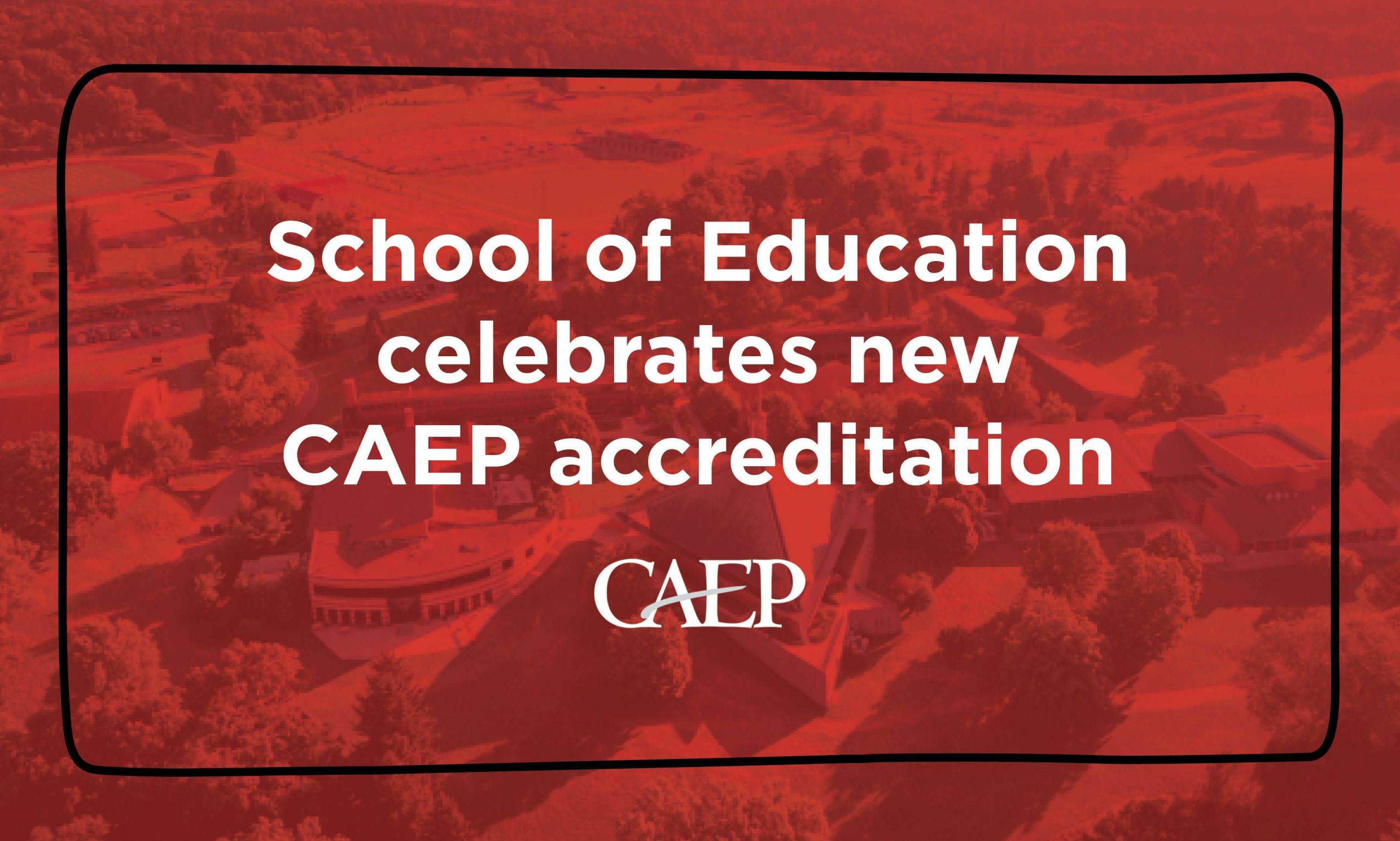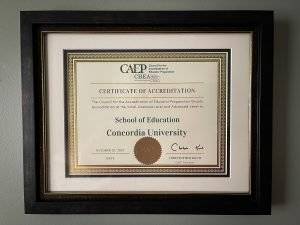
The SOE's new CAEP accreditation is the result of an arduous, multi-year process that digs deep into the inner workings of CUAA’s undergraduate and graduate education programs.
 Concordia University Ann Arbor is proud to announce a new six-year accreditation from the Council for the Accreditation of Educator Preparation (CAEP), recognized by the State of Michigan’s Department of Education as the definitive accreditation body for college educators.
Concordia University Ann Arbor is proud to announce a new six-year accreditation from the Council for the Accreditation of Educator Preparation (CAEP), recognized by the State of Michigan’s Department of Education as the definitive accreditation body for college educators.
“It’s a very intense process,” said CUAA Director of Graduate Education Dr. Sandra Harris. “It’s not something that you can start working on the week before, or the month before, or even the year before! It really does take a long time and a lot of work.”
To become fully accredited, the applicants must show that the school meets detailed criteria in five specific areas of standards:
- Content and pedagogical knowledge
- Clinical partnerships and practice
- Candidate quality, recruitment, and selectivity
- Program impact
- Provider quality assurance and continuous improvement
“Under each standard are components, and we had to document and provide evidence for each component,” Harris explained. “So, although there are only five standards, there are 23 components that had to be addressed.”
Practices and processes
The process includes an extensive self-study, which involves gathering and analyzing several semesters’ worth of records and data. That document, just one of many steps, was submitted to CAEP in July 2020. The Council subsequently returned a “formative feedback document,” which itemized areas where clarification was needed, where information was missing, or areas that needed improvement. In response, CUAA then submitted an addendum to the initial report.
Then, the CAEP team made a site visit (in this case it was done virtually, because of the pandemic), during which evaluators conducted extensive interviews. Subjects included current students, former students, faculty, administrators, and more. After the visit the CAEP team submitted another report, to which the School of Education responded with an official “rejoinder.” A panel interview followed and, ultimately, a decision was handed down. The results could include “full accreditation,” “probationary accreditation,” or no accreditation at all.
After all that, CUAA’s “fully accredited” status is definitely worth celebrating. What it means for CUAA is that both current and prospective students can feel more confident than ever that they’re getting a very high-quality education from the CUAA School of Education.
“Students know that when they come here, they are coming to a school of education that has been fully accredited,” Harris said. “And that’s very important.”
Small team, big results
It also means they won’t have to go through the process for quite some time. That’s a relief for the members of the small team that did a vast majority of the leg work.
“One of the reasons this is such a big deal for us is our department is so small,” Harris explained. “We did the same thing that much larger universities have to do. , We managed to do this with just our small department, which was a great feat for us. It’s a good feeling!”
In addition to herself, Harris said other key team members included Dr. Kyle Chuhran, associate professor of education; Dr. Sara Clemm von Hohenberg, associate professor of secondary education; Dr. Jan Weisenbach, associate professor of education; and Elizabeth Hopkins, licensure, certification, and assessment coordinator.
“And also our university dean, Dr. James Pingel,” Harris adds. “The university gave us wonderful support in terms of the resources we needed, such as the software program that made things much less daunting.”
Of course, there is still one more “VIP” to thank.
“To God be the glory,” Harris said. “We could not have done it without His blessings and His grace and mercy. He gave us the perseverance to complete this task, and we’re all very grateful.”
To learn more about the School of Education at Concordia University Ann Arbor, visit cuaa.edu.
—
If this story has inspired you, why not explore how you can help further Concordia's mission through giving.